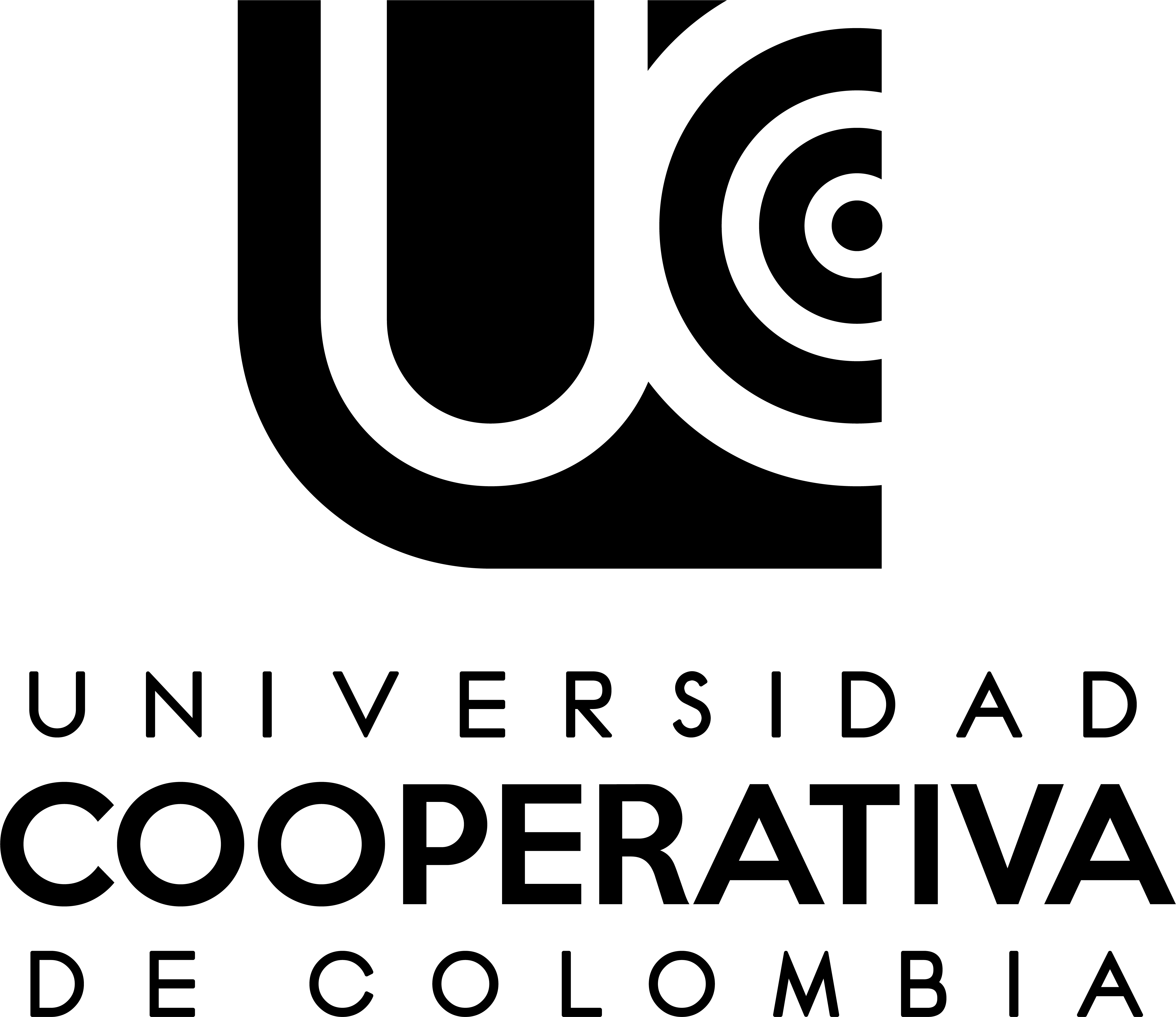Sustainability of sugar cane bagasse utilization in Valle del Cauca, Colombia

Universidad Santo Tomas
Magíster en Desarrollo Sustentable y Gestión Ambiental. Profesora, Facultad de Ingeniería Ambiental
email: anabecerra@usantotomas.edu.co

Universidad Santo Tomas
Ingeniera (o) Ambiental
email: anabecerra@usantotomas.edu.co

Universidad Santo Tomás
Ingeniera (o) Ambiental
email: anabecerra@usantotomas.edu.co
Introduction: This article is the result of the research titled “Sustainability of sugar cane bagasse utilization in Valle del Cauca, Colombia”, developed in 2015 at the Faculty of Environmental Engineering at the Universidad Santo Tomás.
Methodology: the sustainability of sugarcane bagasse utilization produced in the Valle del Cauca was determined using the integrated sustainable development indicator S3 and the biogram developed by the Inter-American Institute for Cooperation on Agriculture (IICA). For this analysis, a diagnosis of the current bagasse utilization was performed; variables and periods involved were defined, the indicator was calculated and the sustainability of bagasse utilization was analyzed.
Results: the result of the current sugar cane bagasse utilization sustainability is 0.51, which represents an average sustainability for the periods evaluated.
Conclusions: It was concluded that the most important aspects to improve sustainability include environmental dimension discharge management, improvements on the productivity of bagasse in the economic dimension and greater coverage of programs in the social dimension.
L.F. Londoño Capurra, “Aspectos generales del sector azucarero colombiano 2015-2016”, Asocaña, Cali, Colombia, Informe anual 2016 [en línea]. Disponible en: http://www.asocana.org/modules/docu-mentos/11993.aspx
Asocaña, “El sector azucarero colombiano más que azúcar, una fuente de energía renovable”, junio 2016 [en línea]. Disponible en: http://www.asocana.org/modules/documentos/10392.aspx
Asocaña, “Anexo estadístico 2014-2015”, Cali, Colombia, Informe anual 2014-2015, 2015 [en línea]. Disponible en: http://www.asocana.org/modules/documentos/11929.aspx
Asocaña, “Aspectos generales del sector azucare-ro 2013-2014”, Asocaña, Cali, Colombia, Informe anual 2014 [en línea]. Disponible en: http://www.asocana.org/modules/documentos/10572.aspx
Unidad de Planeación Minero Energética [upme], Plan energético nacional Colombia: Ideario energético 2050. Bogotá, Colombia: 2015 [en línea].Disponible en: http://www.upme.gov.co/Docs/PEN/PEN_IdearioEnergetico2050.pdf
bndes y cgee, Bioetanol de caña de azúcar, energía para el desarrollo sostenible. Rio de Janeiro, Brasil: cepal, fao 2008, p. 320. [en línea].Disponible en: www.cgee.org.br/atividades/redirect.php?idProduto=5125
S. Sepúlveda, Metodología para estimar el nivel de desarrollo sostenible de territorios. San José, Costa Rica: Instituto Interamericano de Cooperación para la Agricultura, San José, 2008, p. 132 [en línea].Disponible en: http://repiica.iica.int/docs/B0664e/B0664e.pdf
O. A. Ávila Rojas y J. A. Suárez Duarte, “Análisis del ciclo de vida e integración del proceso de producción de Bioetanol de segunda generación a partir de bagazo de caña”, Trabajo de grado, Universidad Industrial de Santander, Colombia, 2010 [en línea]. Disponible en: http://repositorio.uis.edu.co/jspui/bitstream/123456789/6631/2/133914.pdf
Z. G. Unday, “Estudio del impacto ambiental del uso del bagazo como fuente de energía en centrales azucareros en Cuba. Estudio de caso ‘Melanio Hernández’”, Tesis doctoral, Universidad de Girona, Matanzas, Cuba, 2005. Disponible en: http://hdl.handle.net/10803/50994
C. Grogoletto Duarte, K. Gaudreau, R. Gibson y T. Malheiros, “Sustainability assessment of sugarcane-ethanol production in Brazil: A case study of a sugar cane mill in Sao Paulo state”, Ecological Indicators,vol. 30, pp. 119-129, 2013 [en línea]. Disponible en: https://www.tamu.edu/faculty/tpd8/BICH407/Bra-zilenvsoc2.pdf
M. M. El-Halwagi y C. A. Cardona, J. Moncada, “Te-chno-economic analysis for a sugarcane biorefinery: Colombian case”, Bioresource Technology,vol. 135, p. 533-543, 2013.
Asocaña, “Anexo ii. Procesos productivos Diagramas de entradas y salidas - Procesos productivos del sector azúcarero”, 20 enero 2011 [en línea]. Disponible en: http://www.asocana.org/documentos/2012011-a46d6e8a-00ff00,000a000,878787,c3c3c3,0f0f0f,b4b-4b4,ff00ff,ffffff,2d2d2d,b9b9b9.pdf
Asocaña, “Informe final convenio No. 011-12 suscrito entre Asocaña y Asoamaime”, 2015 [en línea]. Disponible en: http://www.asocana.com.co/modu-les/documentos/10796.aspx
A. Ortiz Rivera, “Tratamiento por acidificación controlada de licor negro derivado del bagazo de caña para la recuperación de lignina y reducción de la Demanda Química de Oxígeno (dqo)W”. Proyecto de grado para optar al título de Magíster en Ecotecnología, Universidad Tecnológica de Pereira, Pereira, Colombia 2009 [en línea]. Disponible en: http://repositorio.utp.edu.co/dspace/handle/11059/1462
J. Rodríguez, T. Mañunga y C. Cárdenas, “Influencia de las fracciones de materia orgánica sobre el desempeño de un sistema de tratamiento de agua residual de una industria papelera”, Revista udca Actualidad y Divulgación Científica, vol. 15, n.° 2, pp. 447-455, 2012.
Asocoña, Guía ambiental para el subsector de la caña de azúcar”, Sistema de Información Ambiental Minero Energético, 2010 [en línea]. Disponible en: http://www.siame.gov.co/siame/docu-mentos/Guias_Ambientales/Gu%C3%ADas%20Resoluci%C3%B3n%201023%20del%2028%20de%20julio%20de%202005/AGRICOLA%20Y%20PECUARIO/Guia%20Ambiental%20para%20el%20subsector%20Ca%C3%B1a%20de%20Azucar.pdf
Universidad Nacional de Cuyo, “Industria azucarera”, Revista Virtual Pro, nº. 106, p. 28, nov. 2010 Disponible en: http://www.revistavirtualpro.com/biblioteca/industria-azucarera
C. Ronderos y L. Palacios, “Aspectos económico, sociales y ambientales de la industria de la caña de azúcar en Colombia. Reseña Bibliográfica”. Bogo-tá, Colombia: Universidad Sergio Arboleda, 2011 [en línea]. Disponible en: http://www.academia.edu/4328305/responsabilidad_social_ambiental_industria_azucarera
Carvajal Pulpa y Papel, “Carvajal Pulpa y Papel, pro-ceso de producción”, 2015 [en línea]. Disponible en: http://www.carvajalpulpaypapel.com/productos/proceso-de-produccion/
D. C. Barrera, “Integración de la cogeneración en el mercado eléctrico”, Tesis de Maestría en Gestión Técnica y Económica del Sector Eléctrico, Escuela Técnica Superior de Ingeniería, Universidad Pontificia ComillasSevilla, España, 2013 [en línea]. Disponible en: https://www.iit.comillas.edu/docs/TM-03-004.pdf
Autoridad Nacional de Licencias Ambientales (2015, sep. 22) Certificación 0111-15, por la cual se certifica que son acreditables los elementos y equipos objeto de la solicitud de exclusión del impuesto sobre las ven-tas i va presentada por la empresa Mayagüez S.A., y se toman otras determinaciones. Bogotá, Colombia: 2015 [en línea]. Disponible en: http://www.anla.gov.co/sites/default/files/certi_0111-15_22092015.pdf
Instituto de Hidrología, Meteorología y Estudios Ambientales de Colombia (Ideam), Estado de la calidad del aire en Colombia 2007-2010 D.C. Bogotá, Colombia: Ministerio de Ambiente y Desarrollo Sostenible, 2012 , p. 311 [en línea]. Disponible en: http://documentacion.ideam.gov.co/openbiblio/bvirtual/022433/CALIDADDELAIREWEB.pdf
H. García, A. Corredor, L. Calderón y M. Gómez, “Análisis costo beneficio de energías renovables no convencionales en Colombia”, Fedesarrollo, Bogotá, Documento preparado para wwf, oct. 2013 [en lí-nea]. Disponible en: http://www.fedesarrollo.org.co/wp-content/uploads/2011/08/WWF_Analisis-costo-beneficio-energias-renovables-no-conven-cionales-en-Colombia.pdf
Carvajal Pulpa y Papel, “Informe de avances del convenio de reconversión a tecnología limpia crtl, suscrito entre Carvajal Pulpa y Papel S.A. y la Corporación Autónoma Regional del Cauca crc”, Yum-bo, Valle del Cauca: Carvajal Pulpa y Papel, 2011.
Carvajal Pulpa y Papel, “Informe de Social y Ambiental 2014”, Yumbo, Valle del Cauca: Carvajal Pulpa y Papel, 2014 [en línea]. Disponible en: http://www.carvajal.com/informes/SocialAmbiental2014.pdf
Asocaña, “Balance azucarero colombiano Asocaña 2000 – 2016”, 2016 [en línea]. Disponible en: http://www.asocana.org/modules/documentos/vistado-cumento.aspx?id=5528&
P. Delgado Gómez, “Producción de energía a partir de bagazo de caña supera-rá los 350Mw en 2017”, La República,28, julio 2014. [en línea]. Disponible en: http://www.larepublica.co/%E2%80%9Cproducci%C3%B3n-de-energ%C3%ADa-partir-de-baga-zo-de-ca%C3%B1a-superar%C3%A1-los-350mw-en-2017%E2%80%9D_150146
Unidad de Planeación Minero Energética [upme], “Informe mensual de variables de generación y del mercado eléctrico colombiano, enero de 2015”, Sistema de Información Eléctrico Colombiano (siel), 2015 [en línea]. Disponible en: http://www.siel.gov.co/portals/0/generacion/2015/Seguimiento_Varia-bles_Enero_2015.pdf
Carvajal Pulpa y Papel, “Earth Pact” [en línea]. Dis-ponible en: http://www.carvajalpulpaypapel.com/earth-pact/
Carvajal Pulpa y Papel, “Carvajal Pulpa y Papel firma un pacto verde con el planeta”, 2016 [en línea]. Disponible en: http://www.carvajal.com/carvajal-pulpa-y-papel-firma-un-pacto-verde-con-el-plane-ta.html
N. Garrido Carrelero y F. Diez Torres, “Bagazo de caña de azúcar: ¿energía o etanol carburante? dos casos de estudio”, Ingeniería Química Alcion, vol. 506, pp. 76-85, 2012.
Copyright (c) 2016 Ingeniaría Solidaria

This work is licensed under a Creative Commons Attribution-NonCommercial-NoDerivatives 4.0 International License.
Cession of rights and ethical commitment
As the author of the article, I declare that is an original unpublished work exclusively created by me, that it has not been submitted for simultaneous evaluation by another publication and that there is no impediment of any kind for concession of the rights provided for in this contract.
In this sense, I am committed to await the result of the evaluation by the journal Ingeniería Solidaría before considering its submission to another medium; in case the response by that publication is positive, additionally, I am committed to respond for any action involving claims, plagiarism or any other kind of claim that could be made by third parties.
At the same time, as the author or co-author, I declare that I am completely in agreement with the conditions presented in this work and that I cede all patrimonial rights, in other words, regarding reproduction, public communication, distribution, dissemination, transformation, making it available and all forms of exploitation of the work using any medium or procedure, during the term of the legal protection of the work and in every country in the world, to the Universidad Cooperativa de Colombia Press.










